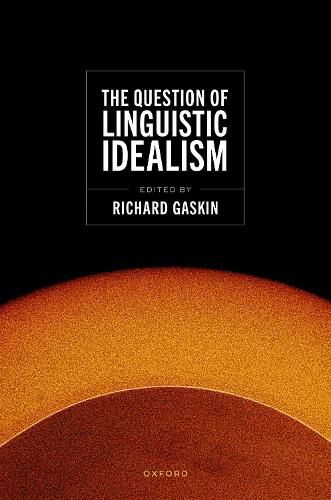Readings Newsletter
Become a Readings Member to make your shopping experience even easier.
Sign in or sign up for free!
You’re not far away from qualifying for FREE standard shipping within Australia
You’ve qualified for FREE standard shipping within Australia
The cart is loading…






The chapters in this volume address the question to what extent the doctrine of linguistic idealism is coherent and plausible. Linguistic idealism, as defined here, holds that both the existence and the (very general) structure of the world are in some sense dependent on the existence and the structure of language. The interest of the thesis is that, since human language is an evolved, empirical phenomenon, it would be surprising and significant if the world, which existed long before human beings came into being and is in many respects quite obviously independent of them, were somehow beholden to the fact that human beings can talk about it. That, nevertheless, is the claim. Much of the discussion of linguistic idealism revolves around making the definition of it both precise and interesting, whether for purposes of attack or defence.The Question of Linguistic Idealism opens with an introduction that presents a general argument for linguistic idealism and examines the way in which that position figures in the writings of Ludwig Wittgenstein and Elizabeth Anscombe. The authors in this collection cover a wide range of possible approaches to linguistic idealism. Some support the position in one version or another; others are hostile. All the contributions are both historically aware and engaged with systematic considerations, but in some the emphasis is placed on historical aspects of the problem-here the focus is particularly on the writings of Kant and Wittgenstein-whereas others adopt a more systematic approach. Each philosopher addresses their chosen aspect of the general topic in (broadly speaking) metaphysical terms, but the bearing of modern linguistic theory on the thesis of linguistic idealism, as well as its connections with mathematical results and practice, play a role in some of the contributions as well.
$9.00 standard shipping within Australia
FREE standard shipping within Australia for orders over $100.00
Express & International shipping calculated at checkout
The chapters in this volume address the question to what extent the doctrine of linguistic idealism is coherent and plausible. Linguistic idealism, as defined here, holds that both the existence and the (very general) structure of the world are in some sense dependent on the existence and the structure of language. The interest of the thesis is that, since human language is an evolved, empirical phenomenon, it would be surprising and significant if the world, which existed long before human beings came into being and is in many respects quite obviously independent of them, were somehow beholden to the fact that human beings can talk about it. That, nevertheless, is the claim. Much of the discussion of linguistic idealism revolves around making the definition of it both precise and interesting, whether for purposes of attack or defence.The Question of Linguistic Idealism opens with an introduction that presents a general argument for linguistic idealism and examines the way in which that position figures in the writings of Ludwig Wittgenstein and Elizabeth Anscombe. The authors in this collection cover a wide range of possible approaches to linguistic idealism. Some support the position in one version or another; others are hostile. All the contributions are both historically aware and engaged with systematic considerations, but in some the emphasis is placed on historical aspects of the problem-here the focus is particularly on the writings of Kant and Wittgenstein-whereas others adopt a more systematic approach. Each philosopher addresses their chosen aspect of the general topic in (broadly speaking) metaphysical terms, but the bearing of modern linguistic theory on the thesis of linguistic idealism, as well as its connections with mathematical results and practice, play a role in some of the contributions as well.